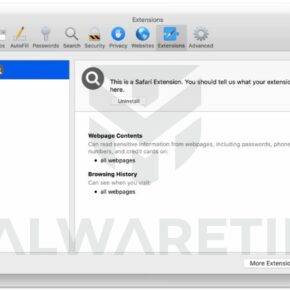When you open the Task Manager on your Windows computer, you may notice a process called “Service Host: Application Layer Gateway Service” running in the background. This process, also known as ALG.exe, is an essential component of the Windows operating system. In this article, we will explore why the Application Layer Gateway Service process is running in Task Manager and its significance in maintaining a secure and efficient system.
![Service Host: Application Layer Gateway Service [Process Explained] 1 Windows Task Manager](https://malwaretips.com/blogs/wp-content/uploads/2023/06/Windows-Task-Manager.jpg)
Understanding the Application Layer Gateway Service
The Application Layer Gateway Service (ALG) is a Windows service that provides support for various network protocols and applications. It acts as an intermediary between the applications running on your computer and the network. ALG helps in managing network traffic, allowing specific applications to communicate with external networks securely.
ALG is responsible for performing tasks such as:
- Network address translation (NAT): ALG translates private IP addresses used within a local network to public IP addresses for communication over the internet.
- Port mapping: ALG maps specific ports used by applications to allow incoming and outgoing network traffic.
- Protocol filtering: ALG filters network traffic based on specific protocols, ensuring only authorized communication takes place.
- Application-specific functionality: ALG provides additional functionality for specific applications, such as FTP (File Transfer Protocol) or SIP (Session Initiation Protocol).
Why is the Application Layer Gateway Service Running?
The Application Layer Gateway Service runs in the background to facilitate network communication for various applications and protocols. It is a crucial component for maintaining network security and ensuring the smooth functioning of network-dependent applications.
Here are some reasons why the Application Layer Gateway Service might be running:
- Network Address Translation (NAT): ALG performs NAT to translate private IP addresses to public IP addresses, allowing devices within a local network to communicate with external networks.
- Port Mapping: ALG maps specific ports used by applications, enabling incoming and outgoing network traffic.
- Protocol Filtering: ALG filters network traffic based on specific protocols, ensuring secure and authorized communication.
- Application-specific Functionality: ALG provides additional functionality for specific applications, enhancing their network capabilities.
It is important to note that the Application Layer Gateway Service is a legitimate Windows process and is not inherently harmful. However, like any other process, it is essential to ensure that it is not being exploited by malware or viruses.
Checking for Malware or Viruses
While the Application Layer Gateway Service is a legitimate process, it is possible for malware or viruses to disguise themselves as ALG.exe. To ensure the security of your system, it is recommended to regularly scan your computer for malware and viruses.
Malwarebytes Free is a reliable and effective antivirus software that can help you scan and remove any potential threats. It is always a good practice to keep your antivirus software up to date and perform regular scans to protect your system.
Conclusion
The Application Layer Gateway Service process, also known as ALG.exe, is an essential component of the Windows operating system. It facilitates network communication, performs network address translation, port mapping, protocol filtering, and provides application-specific functionality. While ALG.exe is a legitimate process, it is crucial to regularly scan your computer for malware and viruses to ensure the security of your system.
By understanding the role of the Application Layer Gateway Service and taking necessary security measures, you can maintain a secure and efficient system, allowing your applications to communicate with external networks seamlessly.




